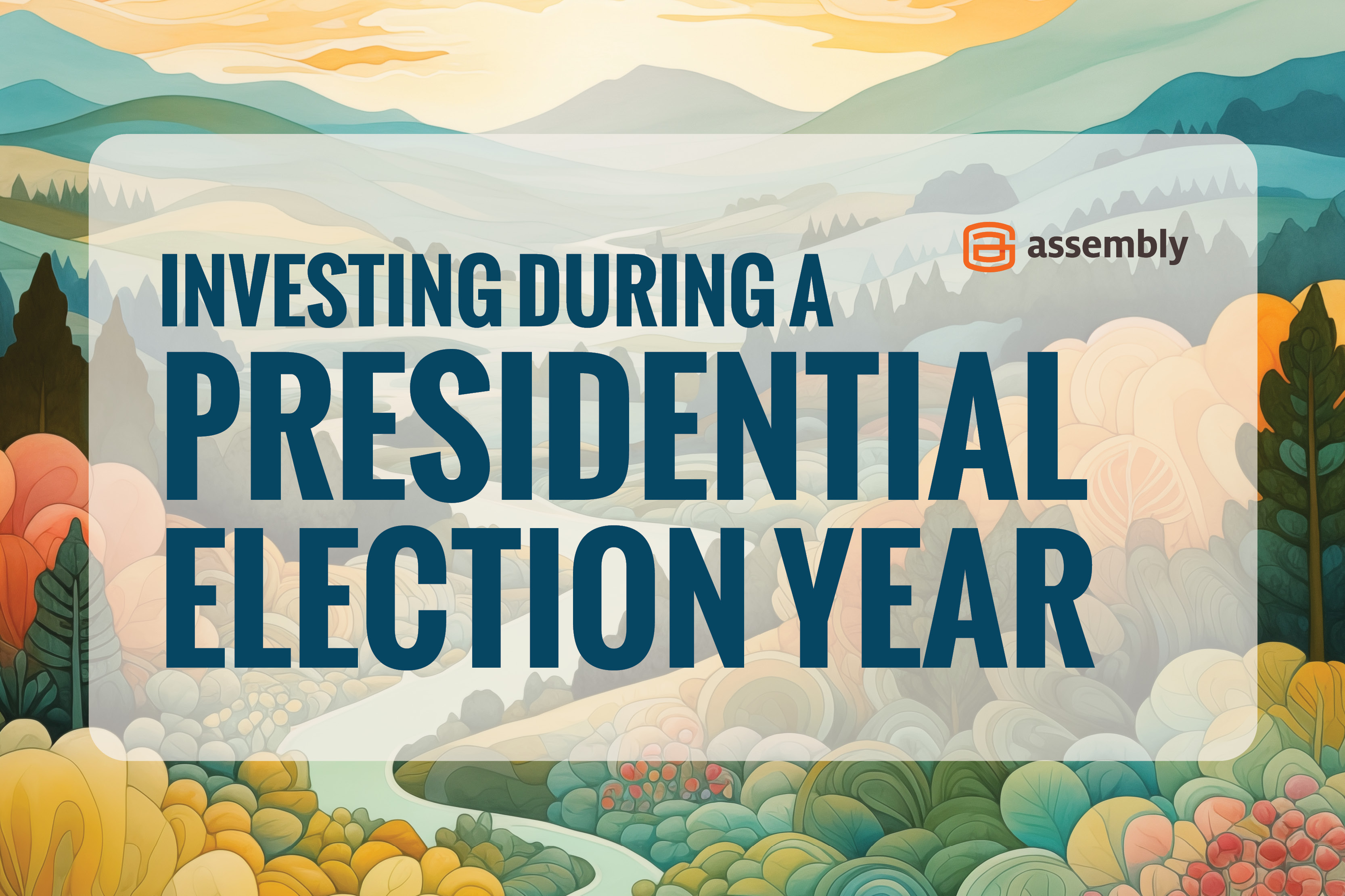How to Invest When the Market is High
With US equity markets trading near all-time highs1, some investors may be concerned about a sell-off in the near future. While this thinking may...

Maintaining a disciplined approach to investing can be particularly challenging for investors in a presidential election year.
Here’s what history has to say on the matter:
The US stock market tends to do well regardless of which party controls the White House. The chart below from BlackRock shows that if you invested in the S&P 500 Index in January 1926, you would have had a cumulative return of 1,456,754% through the end of 2023.1
Returns were positive during both Republican and Democratic administrations. In fact, the charts below from BlackRock summarize the importance of remaining invested even if your preferred political party doesn’t hold the White House. 
A hypothetical $1,000 investment in the S&P on December 31, 1953 would be worth $1.58 million at the end of 2023. But if you only remained invested when one political party held the White House, your returns would be just a tiny fraction of that $1.58 million2 — $31,000 or $50,000 depending on the party.
Looking at annual stock market returns from 1926 through 2023, BlackRock found that the average return in all years was 10.3%, but the average return in presidential election years was even higher at 11.6%.3
There are certainly exceptions, such as when the S&P 500 dropped 9.1% in 2000 and when it fell 37% in 2008. But 2000 was the year the dotcom bubble burst and 2008 was the start of the Great Financial Crisis. It’s hard to make a case that either of those declines were related to the presidential elections that occurred in those years.
From a historical perspective, remaining in the market during a presidential election year should not be a cause for concern. That said, election outcomes can impact key policy issues in the years that follow. There may be changes to tax rates, federal budget priorities, global trade policies, etc. Investors should work with their Wealth Manager and tax professional to better understand how any future changes in tax policy may impact them.
Having a well-diversified portfolio is the best way for investors to navigate any potential future changes to things like trade policy, energy policy, defense spending, etc. Predicting which particular sector, stock or company will perform well based solely on the government’s configuration is likely to be an exercise in futility. Other macroeconomic factors, such as economic growth, inflation, interest rates, the strength of the dollar, consumer confidence, etc. also have a considerable impact on the market.
A presidential election year should not trigger investors to make emotional, politically driven changes to their portfolio. As shown above, the broad market tends to go up over time – during both Democratic and Republican administrations.
While it may be tempting to try to time the market based on an anticipated election outcome, investors would be wise to take a deep breath and remember that their portfolio holdings should be based on their long-term goals and risk tolerance. An investment portfolio should not be a short-term bet on a particular political outcome.
If you’re feeling uncertain about the future, that’s completely understandable. We’re here to help. Our experienced team can design a personalized financial strategy to help you achieve your long-term goals.
Past performance may not be indicative of future results. Different types of investments involve varying degrees of risk, and there can be no assurance that any specific investment will either be suitable or profitable for a client or prospective client’s investment portfolio. Historical performance results for investment indices and/or categories generally do not reflect the deduction of transaction and/or custodial charges, the deduction of an investment management fee, nor the impact of taxes, the incurrence of which would have the effect of decreasing historical performance results.
Related Reading:
Are You Prepared for These Common Financial Challenges?
Investing Isn’t Always About Retirement Planning
How to Invest When the Market is High
1 BlackRock Student of the Market – Election Year 2024 – Page 3
2 BlackRock Student of the Market – Election Year 2024 – Page 4
3 BlackRock Student of the Market – Election Year 2024 – Page 5
Fill out the form to be notified about new articles.

With US equity markets trading near all-time highs1, some investors may be concerned about a sell-off in the near future. While this thinking may...

On April 2nd, equity markets experienced significant volatility following President Trump’s Executive Order on tariffs. The Executive Order imposed a...

“Sell in May and go away” is an old stock trading adage that is based on a seasonal pattern demonstrated in U.S. equity markets where stocks tend to...